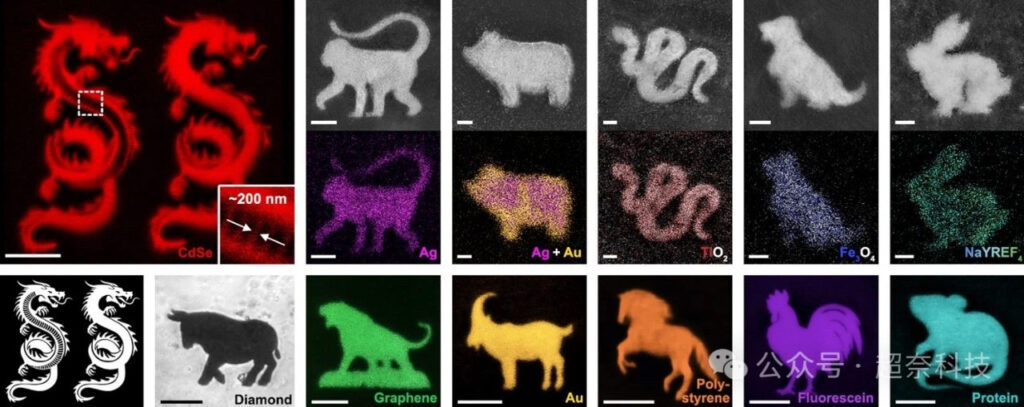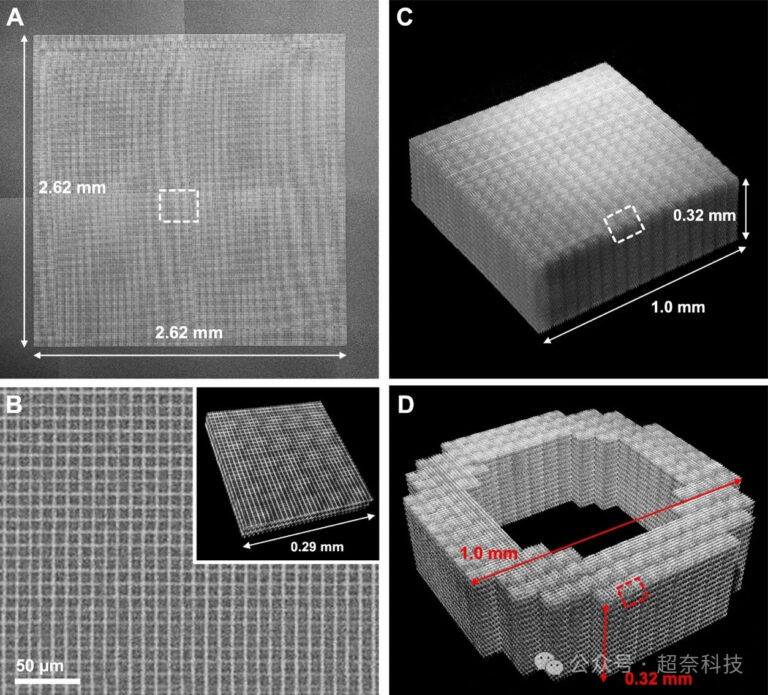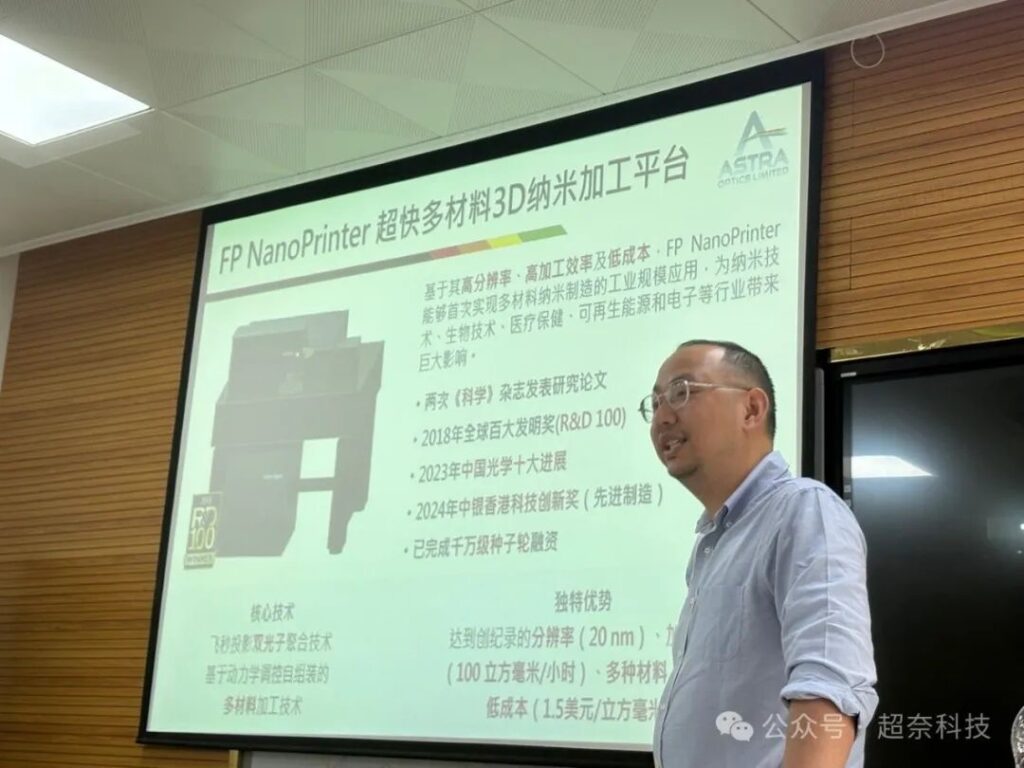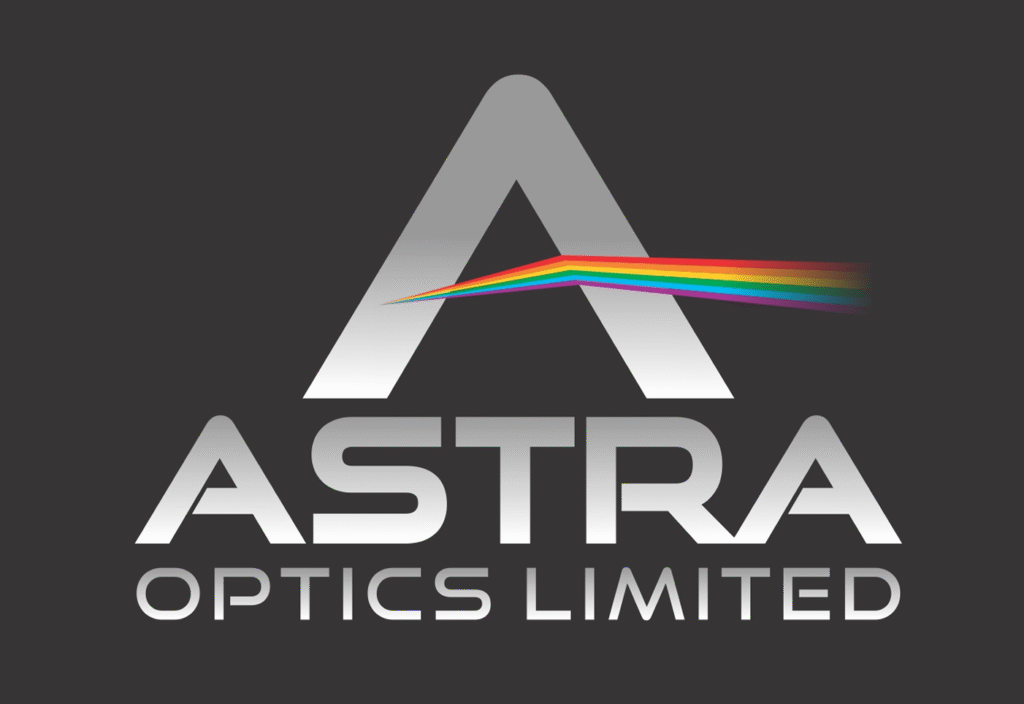Astra Optics Limited, a pioneering startup spun out from The Chinese University of Hong Kong, is redefining the possibilities in nanoscale fabrication. Building upon the team’s groundbreaking research published in Science in 2019 [1] and 2022 [2], Astra Optics launched the world’s first multi-material nanoscale 3D manufacturing platform — the Femtosecond Projection NanoPrinter. This innovation sets a new benchmark for high-precision, multi-material, and rapid prototyping applications in both scientific research and industrial production.

Our Advantages
-
Multi-Material Compatibility
Compatible with over 15 material types—including metals, polymers, and biomaterials—enabling complex 3D micro/nanostructure fabrication across diverse applications. -
Ultra-High Resolution
The FP printing platform achieves a resolution as fine as 30 nm, while the Two-Photon Polymerization (TPP) platform delivers 140 nm lateral and 175 nm axial resolution. -
High-Speed & Cost-Efficient
Our FP technology overcomes the traditional trade-off between resolution and throughput, delivering printing speeds 1,000× faster than commercial systems while reducing costs by up to 90%.



Campus Recruitment Event Concludes Successfully: A New Chapter in Talent Acquisition
On the morning of April 28th, Astra Optics successfully held a recruitment seminar at the West Campus (Physics Building 2) of the University of Science and Technology of China, attracting many outstanding students interested in the field of nanomanufacturing.

Our Mission
Founded by a team of experts in optical engineering, materials science, and nanomanufacturing, Astra Optics is dedicated to designing and building innovative tools that accelerate discoveries in science and medicine.
Our Team
Astra Optics is powered by a team of seasoned experts and scientists, including Chairman Prof. Shiqi Chen, CEO Charu Datar, CTO Dr. Qiuyuan Zhong, as well as a number of scientific advisors and senior engineers. Our team is not only dedicated to technological innovation, but also committed to supporting leading scientists, laboratories, and industrial users in achieving breakthroughs in the fabrication of microscale and mesoscale devices such as microlenses and diffractive optical elements.






